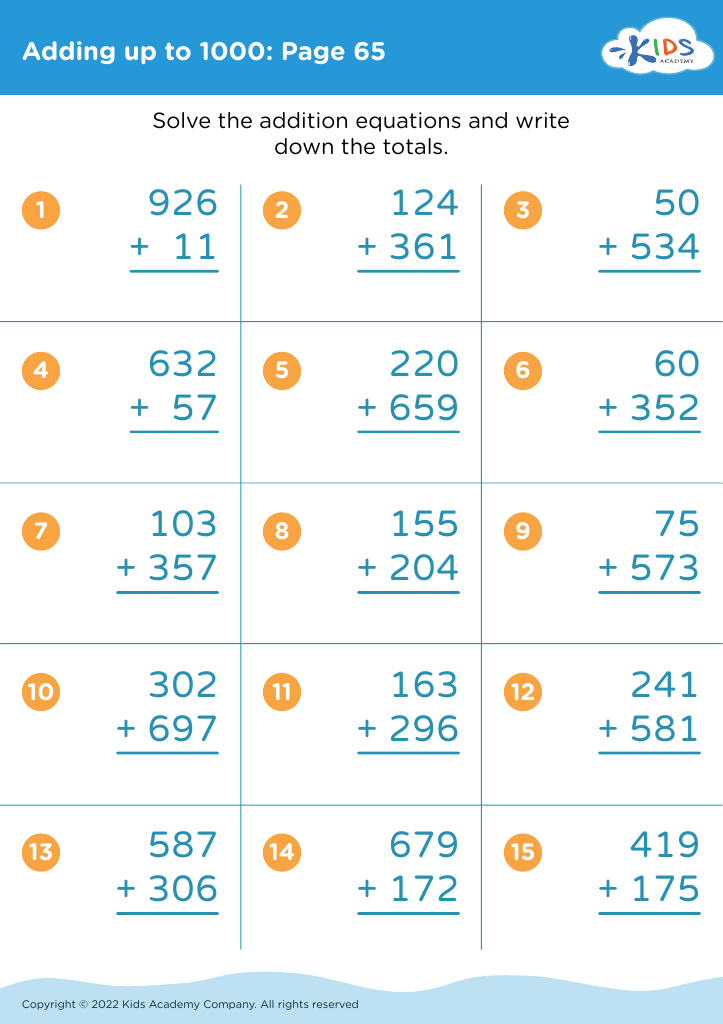Sequencing Skills Addition Worksheets for Ages 7-8
3 filtered results
-
From - To
Enhance your child's mathematical abilities with our Sequencing Skills Addition Worksheets, designed specifically for ages 7-8! These engaging and interactive worksheets focus on helping young learners develop critical sequencing skills while mastering addition concepts. Children will practice arranging numbers in a logical order, solving addition problems, and recognizing patterns, all while building confidence in their mathematical understanding. Our carefully crafted activities not only make learning fun but also reinforce essential skills that are vital for academic success. Browse our collection and provide your little mathematicians with the tools they need to excel in addition and sequencing today!
Sequencing skills are vital for children aged 7-8 as they lay the foundation for critical thinking and organizational abilities, essential in both academic and life contexts. For parents and teachers, fostering these skills not only enhances a child’s understanding of mathematical addition but also strengthens their overall cognitive development.
At this age, children transition from concrete to more abstract forms of thinking, and mastering sequencing allows them to understand and solve addition problems systematically. This skill helps children grasp the concept of steps, learn to follow a logical order, and develop the ability to break down complex tasks into simpler parts. Such abilities benefit children beyond mathematics; they contribute to literacy, comprehension, and even social skills.
Additionally, strong sequencing skills facilitate better study habits, improved memory retention, and effective problem-solving strategies. For teachers, incorporating sequencing activities in the classroom promotes engagement, critical thinking, and collaboration among students, while for parents, fostering these skills at home can support their children's learning journey. By prioritizing the development of sequencing skills in addition and other subjects, parents and teachers equip children with the tools needed for their academic success and lifelong learning.








.jpg)










